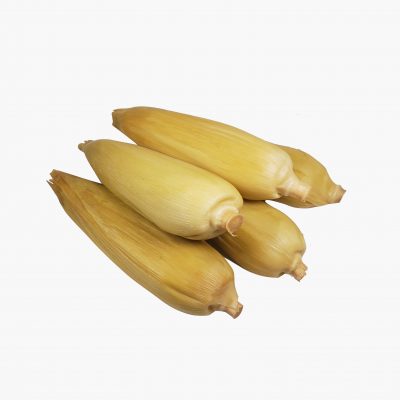Corn is considered to be a type of golden cup sleep because it not only meets the main food needs of humans from the very beginning but also is a potential source of nutrition that helps prevent the pathological symptoms of coronary arteries. lead to myocardial infarction, heart failure, stroke.
Corn has a scientific name called Zea Mays L. of the Graminae Harmony family. Corn kernels were once the main food of many nations. Corn stubble is a popular medicine in the country to increase the secretion of bile and increase the amount of urine in cholecystitis, turn off the gallbladder or edema in kidney and kidney diseases.
Although traditional medicine records corn with sweetness, warmth, temperament, regulates visceral sleep, but corn seeds are rarely used as a medicine. Moreover, since the food source from rice is plentiful, the use of corn as a daily food is very rare. Unfortunately, as rice milling and polishing technology has developed, the more “eye-catching” rice is also the time when the human diet has deprived of the many valuable nutrients inherent in the outer shell. of rice grains. These are fiber, B vitamins and some other important minerals. Therefore, the addition of fresh corn, whole corn to the daily diet is noteworthy.

Corn helps regulate the amount of fat in the blood, preventing cardiovascular disease
Recent studies have shown that high-fiber diets such as corn, rye, and brown rice have improved blood openness, reducing the risk of cardiovascular disease and Stroke. When referring to fiber, the scientists also noted that only the fiber from the “black” cup, which is whole, whole, can be effective to reduce the risk of cardiovascular disease. Fiber from fruits and vegetables does not provide this effect. The experts said that middle-aged people who eat these types of naps for more than 9 years will be able to reduce the risk of cardiovascular disease by 21%.
Corn stimulates digestion and enhances basic metabolism
The composition of whole corn includes many natural vitamins B group such as B1, B2, B6, Niacin and some other essential minerals for the body. In particular, some micronutrients have had a superior rate in corn when compared to brown rice. Corn is one of the recommended sources of carbohydrates for diabetics. The low glycemic index and high fiber content of corn enhances feelings of fullness while slowing the absorption and metabolism of sugar. In addition, the B vitamins are involved in many different functions of the body including growth, energy metabolism, maintenance of the nervous system and regulating organ activity.
Corn enhances the activity of the large intestine
People have long been aware of the importance of the insoluble fiber found in foods such as vegetables, sleeping, and thinking of it as important factors in preventing colon diseases including cancer. and constipation.
Corn milk
How can you take advantage of these benefits when corn is not available? However, you can still use frozen corn when it is still fresh. Another option for you is fresh corn milk.
Prevent anemia
Anemia is caused by lack of vitamin B12 and folic acid. Iron deficiency also causes anemia. Corn contains significant amounts of iron, which is one of the essential minerals for the formation of new red blood cells.
Good for the heart
The oil in corn contains an optimal fatty acid mixture, thus allowing omega-3 fatty acids to remove the bad cholesterol and replace them at the binding sites. This prevents arteries from clogging, thereby lowering blood pressure and reducing the risk of heart attack and stroke.
Increased energy
Corn is a starchy food, containing a high amount of carbohydrates, providing you with a huge amount of energy. It also helps ensure the brain and nervous system work properly.

Reduce cholesterol
Sweet corn is rich in vitamin C, carotenoids (which are yellow, orange and slightly reddish, found in plants) and bioflavonoids (substances found in the skin of citrus green fruits) that help keep the heart Your health by controlling cholesterol levels and increasing blood volume. Corn oil has the ability to lower bad cholesterol and raise good cholesterol in your body.
Control high blood pressure
Corn is a good source of B vitamins called pantothenic acid. This helps in the metabolism of carbohydrates, lipids and proteins, thereby reducing stress. In addition, the presence of phenolic phytochemicals protects you from hypertension.
Control diabetes
The fiber in corn corn helps maintain normal blood sugar levels, slowing down the rate at which glucose or sugar gets into the bloodstream. The regular consumption of corn helps to manage insulin-dependent diabetes.
Reduce the risk of cancer
Studies have shown that the antioxidants found in corn corn have the ability to fight off and eliminate free radicals that can cause cancer. In addition, corn is a rich source of phenol and ferulic acid that has the ability to prevent tumors in the breast and liver.
Read more:


 Tiếng Việt
Tiếng Việt